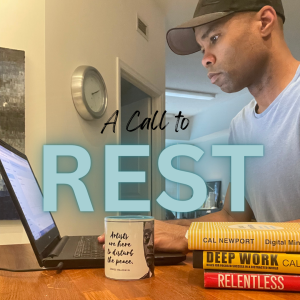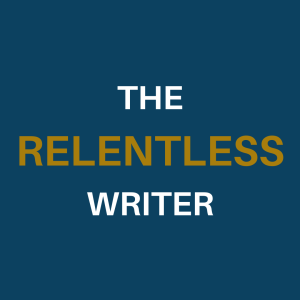
Even before the COVD-19 pandemic, I rolled out of bed somewhere between 3:00 and 4:00 a.m. Now, on what I call a ‘good day,’ I wake up consistently around 3:00 a.m., give or take ten minutes. No alarm clock. I’ve never needed one. Perhaps because I’ve been dealing with insomnia for most of my adult life. It’s during the quiet of those early morning hours when I am able to focus, uninterrupted, on my creativity. Getting up that early makes for long days. But with my fiftieth birthday on the horizon, I’m thinking more about how I spend my time. And, more specifically, I’m thinking about how to ensure I am getting enough rest.
An Example Not to Follow
I’ve never been good at rest/relaxation. Whenever I’ve travelled, spending a day at the beach was never high on my to-do list. If you wanted to leave the resort and explore the nearby towns and villages, I was in. (Getting lost in a foreign country at night, where I didn’t speak the language, was a little scary!) As a flight attendant, I often worked the overnight flights to London, Copenhagen, Dublin or Paris. Unlike most of my colleagues, I never went straight to bed. I showered, changed, and headed to a museum or for a run—dodging the curious looks the hotel staff threw at me as I crossed the lobby. And a lot of times, when I use my vacation days (like I will this week), I’m taking time off to write and move my creative projects forward.
Taking time off from my day job to write is, in fact, restful for me because I’m free of a demanding and abusive public. I’m able to freely manage my time. At any point during the day, I can go for a run, pick up where I left off on my current read, or be creative in the kitchen. It’s when I feel like I truly have dominion over myself, my time, and my life.
Still, I know something is missing. It’s a thing called rest.
Knowing Doesn’t Equal Doing
 Taking time to rest, to do absolutely nothing, is hard for me. For two reasons. First, I erroneously equate doing nothing to laziness. That’s a perception I’m working on changing. Second, when I’m constantly looking to the future and where I want to be (because I’m not satisfied and know I can do more), rest seems—again, perhaps speciously—counterintuitive. Even knowing that research in neuroscience and psychology shows the benefits of rest, such as stimulating our creativity, why am I still throwing up resistance to the importance of taking time to rest?
Taking time to rest, to do absolutely nothing, is hard for me. For two reasons. First, I erroneously equate doing nothing to laziness. That’s a perception I’m working on changing. Second, when I’m constantly looking to the future and where I want to be (because I’m not satisfied and know I can do more), rest seems—again, perhaps speciously—counterintuitive. Even knowing that research in neuroscience and psychology shows the benefits of rest, such as stimulating our creativity, why am I still throwing up resistance to the importance of taking time to rest?
Here’s why: The clock is ticking. Remember, I’m turning fifty in August. And while I try to recognize the richness of life and all its beauty each day, I’m closer to the end of my terrestrial journey than the beginning. I’m trapped in a thought pattern that justifies not resting or taking breaks in order to make sure, or at least make a valiant attempt, to get everything done in this life. The most important things, anyway. I don’t want to have regrets at the end of my life.
The Mindset Shift: Embracing Rest
As mentioned above, rest offers numerous benefits, like reduced stress and anxiety, improved mood, and more. The biggest one for me is avoiding burnout. How many times in the past have I tried to keep going and going like the Energize Bunny only for my body to yell, “Stop!” by introducing a massive infection or illness? Too many. Yet once I was healed, I returned to my same old habits.
I’m trying to break free of those old patterns. It’s not easy. In this chaotic, always-on world, I’m still—for whatever reason—afraid of missing out. Does anyone really care if I don’t post on Instagram for a day, or a week, except for the Instagram algorithm? Is anyone really paying that close attention to me? If I finally signed up for the rowing lessons I’ve been talking about for the past five years, wouldn’t that do more for my creative stores? If I took an afternoon to explore the Scarborough Bluffs, wouldn’t that allow me to recharge my body and mind, and to come back to my creative projects with a new perspective? Stepping back, I might even come up with new ideas and see their worth.
A Call to Rest
Rest, like writing, is a skill that needs to be practiced and honed. Learning to be more efficient and focused during those early morning hours, despite having a day job, will afford me downtime later in the day. I’m going to take advantage of it (fingers crossed).
[…] liked to think, especially when I was younger, that I could go, go, go like the Energizer Bunny. And I could…for a while. Until my body crashed, and crashed hard. But Adam Alter reminds us in […]